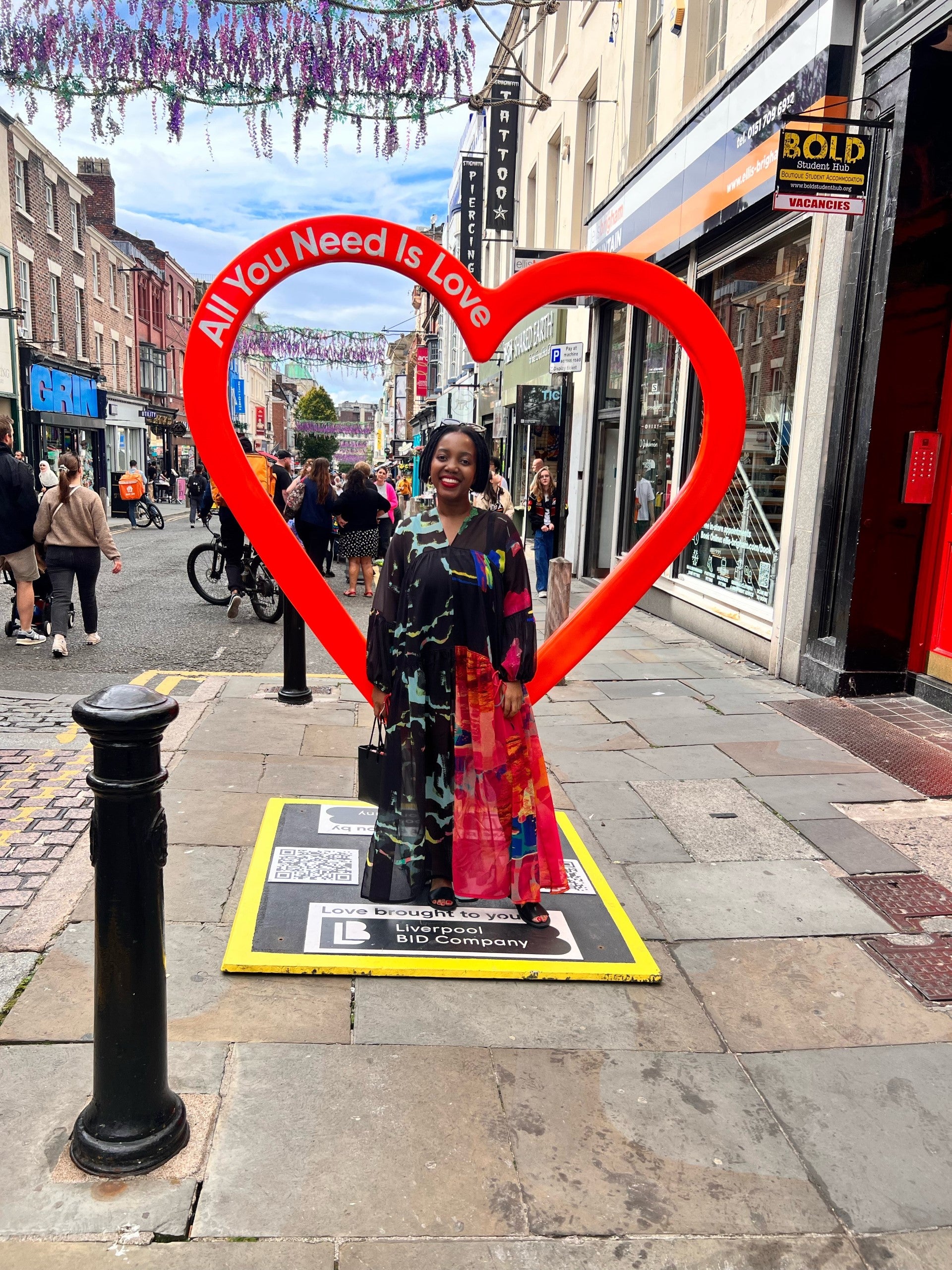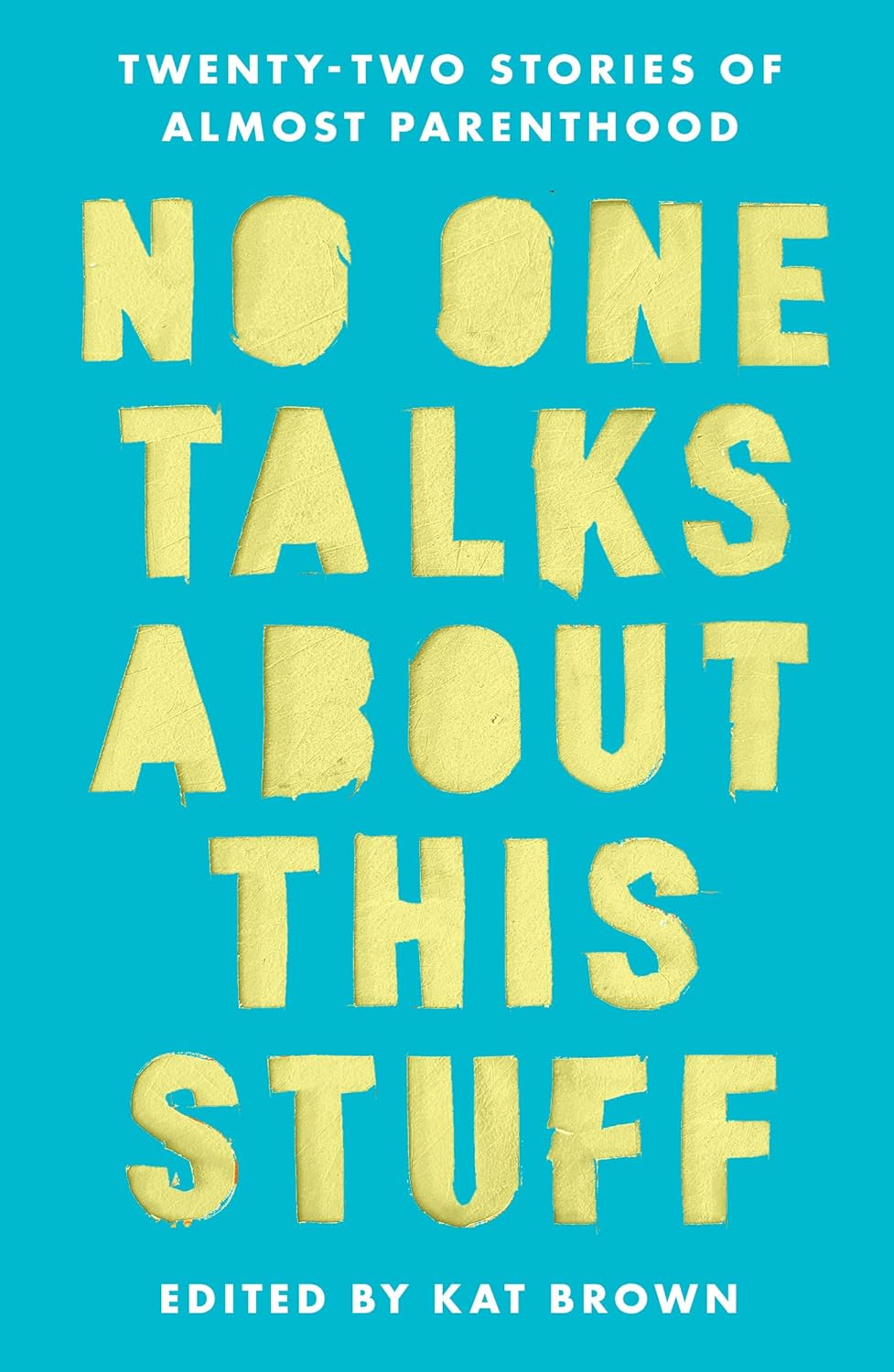We need to recognise the pain of infertility and unspoken trauma of ‘almost motherhood’
For six years Noni Martins tried unsuccessfully for a baby, navigating the grief of it not happening for her. Here, she explains how it feels to then have her ‘dream’ come true and why, on her first Mother’s Day, she believes the trauma and grief of trying for a baby needs to be acknowledged, because it never truly goes away

At every family gathering since we got married in 2018, the women would ask me, “How is married life?” followed by, “Where are the babies?” We tried for a baby for almost six years; naturally for the first two and a half, and then, after a diagnosis of male factor infertility from my husband’s years on dialysis following kidney failure when he was 22, through IVF.
Once, at my mother’s house, her friend assumed that, because I was wearing a kaftan, I must be pregnant. I didn’t feel upset – in fact, I couldn’t stop laughing as my mother turned my kaftan into a fitted dress to emphasise my “no belly”. Later, I realised that I was laughing to mask the shock. I didn’t know how else to respond.
The women in our lives mean well; they want to be encouraging about becoming mothers, and this is how they communicate it. It never feels like the right time for me to educate people on infertility when there’s a whole culture to dismantle, and besides, I don’t always have the emotional capacity to educate. Laughing it off is sometimes an act of self-care. A discussion can give you more hurt than you bargained for.
For the longest time, I found it very difficult to be “not pregnant”. There is something impossible in trying to reconcile being an IVF patient with the fact that others are having babies naturally, just LIKE THAT! Your friends, people you know, strangers: it’s everywhere.
Don’t get me wrong, I am very happy for my friends, but every natural pregnancy around me became a reminder that I was not a mum yet. It was heartbreaking.
When you are trying for a baby, the thing so many of us do is keep it moving. I had kept going, from trying to conceive naturally to having fertility treatment, without ever stopping to really take stock. Imagine trying to get something for years and repeatedly getting nothing – there is no emotional training for this.
In fertility treatment, striking the balance between being hopeful and realistic is like trying to match the colours on a Rubik’s Cube – possible, but also impossible. Once an embryo is implanted into your womb, you are classed as “pregnant until proven otherwise”, or PUPO. That kind of language is hard to detach from, even after a negative pregnancy test. You are left bewildered by it all.
My second cycle was the first time that I really did feel PUPO, and for those 10 days before testing, I spoke to my belly with our baby’s chosen name, and then had to grieve the loss of the possibility of ever loving that little person.

I spent six years in the pursuit of motherhood and there was still no baby. I could process it initially after the first few months of trying, after a year, after two years, even, but when I started to realise that there was no guarantee of success, no matter how much I tried, it really started to affect my mental health.
I became traumatised by pregnancy tests to the point that my husband had to buy them. They were not associated with good news. The heartwarming vibes seen in pregnancy announcement videos wasn’t my experience. I was always not pregnant.
In 2020, it hit me how much time I had lost to the tunnel vision of the “trying to have a baby” thing. I had become fully zoned in on baby-making to the point that, when a friend asked me, “What have you done recently that has given you joy?” I couldn’t answer.
I simply could not remember the last time I had experienced something that made me feel joy. It was as though I had been on autopilot for years, heading towards one destination: motherhood. I was completely disconnected from the idea that life – without a baby – still had meaning.
My journey to motherhood ruined my spirit, and I am definitely not the person I used to be. There is no other way to articulate that and I am exhausted from trying to censor my experience for everyone else’s comfort
I cannot articulate enough the unsettling feelings of living in the in-between states of almost-motherhood. Not being a mother physically, but in constant pursuit of becoming one. No baby to show for that desire.
The trauma that manifested in my body wasn’t just about a baby; it became about everything. I became plagued with an uneasiness that wouldn’t go away. Was it one moment that changed everything, or was it a gradual build-up of the constant feeling of anxiety?
When our third round of IVF failed, the crying caught me unaware; while I was drinking tea, while I was eating, while I was staring outside or staring at my phone, while I was driving. Tears rolled down my cheeks with no sound or body response at all, just a slow release of sadness.
I started having panic attacks – full-blown meltdowns. One incident that stands out is from a friend’s 30th birthday, one of the best days we’ve had as a friendship group. We threw a surprise dinner party and I drank, I danced, I laughed. I felt joyful. I was meant to spend four nights in London. Instead, when I woke up the next morning, I changed my train ticket and told everyone I was leaving. I couldn’t explain why, not even to myself. I just needed to get home.

On the train at London Euston, I fell apart. I started crying, softly at first, then hysterically, and before I knew it, I was heaving, dizzy and confused. I felt so vulnerable. It was as if the joy I had felt just the night before had to be met in equal measure by sadness. At that moment, there was nothing I could do to make myself feel better. It took another meltdown at Manchester Airport before I realised that trauma had consumed me. I remember my mother saying to me, “I don’t recognise you like this; this is not you, Noni.” I understood what she meant because I also didn’t recognise myself.
Myleene Klass said something in her 2021 documentary about miscarriage that really resonated: “I’ve got my baby now, but God: I lost a lot of me.” There is an assumption that, once you have a baby, everything will return to “normal”; that you would return to a former self; that just because you wanted a baby “so much”, you’ll be immune to the psychological and physiological impact of being on this infertility journey.
My journey to motherhood ruined my spirit, and I am definitely not the person I used to be. There is no other way to articulate that and I am exhausted from trying to censor my experience for everyone else’s comfort, because I have always been the kind of person who struggles to be vulnerable.
I only fully realised how much my life was forever changed after going to my GP (for something unrelated to fertility, for a change). When she asked me how I was, I immediately started crying. Through hysterical tears, I said over and over, “I feel so overwhelmed. I feel so overwhelmed.” This journey is fraught with so much loss, and in the end, my marriage couldn’t survive the pain.

After seven years of trying to conceive – and a divorce – my daughter was born six weeks ago via a surrogate and I am raising her as a solo parent. When I first met her, I wasn’t immediately flooded with pure joy and bliss. Instead, the unresolved feelings from all those years of trying to conceive and failing took over. On our first night in the hospital, I confided to a friend how I was feeling and she told me that I should focus on the fact that she is here now and touch her, and hold her as much as I need to, to feel that she is real.
I am immensely grateful for the woman who selflessly carried my child at a time that I would not have coped with being physically pregnant. For nine months, I processed the miracle that I was having a child via a surrogate without my mind, body and spirit having to relive the trauma of almost-motherhood.
So, on my first Mother's Day with a child, I am sending out love and care to all women; mothers, mother-adjacent women, surrogate mothers, those yearning to become a mother, those experiencing infertility and IVF, those grieving the loss of a child, and those who have adopted and fostered. Everyone handles grief differently and I wish every woman out there hope and healing.
Noni Martins is the founder of Unfertility, a three-pronged podcast, community and awareness campaign that seeks to break the silence, stigma and shame around unconventional fertility journeys through the voices of Black women
A version of this essay appears in a collection of writing collated by Kat Brown in her book ‘No One Talks About this Stuff: Twenty-two Stories of Almost Parenthood’ out 21 March





Join our commenting forum
Join thought-provoking conversations, follow other Independent readers and see their replies
Comments